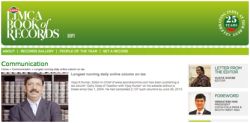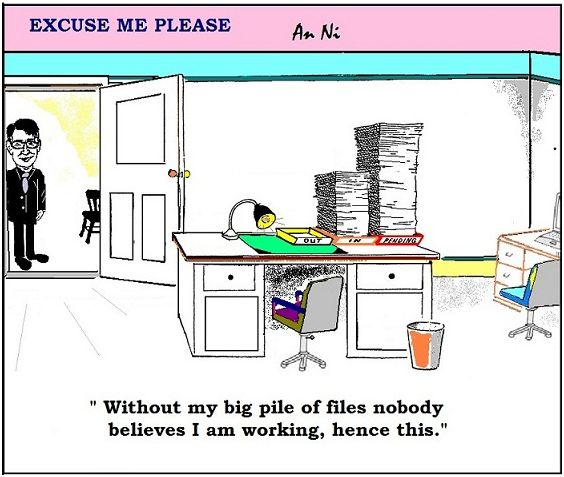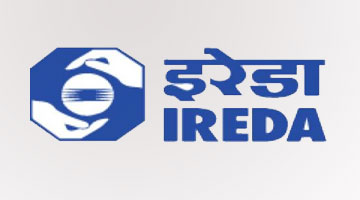
08.05.2014
Thursday
WHAT happens when a judgement of a three-member bench of the Supreme Court is overruled by a bench of five judges? Does the new judgement get retrospective effect?
After all the five judge bench is only clarifying the law and so perhaps has the effect from the beginning of law itself, but if I have been following the law as laid down by three hon'ble judges of the highest court in the country, can I be stuck with a liability because after ten years a larger bench of five judges feel that the three judges did not interpret the law correctly?
Kone Elevators - little inclined - towards Revenue?
YESTERDAY we reported a landmark judgement of a five judge bench of the Supreme Court in 2014-TIOL-57-SC-CT-CB
When you get a lift for your apartment, are you buying a product called a lift or are you buying the services of getting a lift installed in your premises?
Are you liable to pay
1. Excise Duty
2. VAT
3. Service Tax
4. Works Contract Tax
5. One or more of the above.
In State of AP v Kone Elevators - 2005-TIOL-30-SC-CT-LB - a three member bench of the Supreme Court observed that contractual obligation of the assessee was only to supply and install the lift, while the customer's obligation was to undertake the work connected in keeping the site ready for installation as per the drawings.In view of the contractual obligations of the customer and the fact that the assessee undertook exclusive installation of the lifts manufactured and brought to the site in knocked-down state to be assembled by the assessee, it is clear that the transaction in question was a contract of 'sale' and not a 'works-contract'.
It was also held that the major component of the end product is the material consumed in producing the lift to be delivered and the skill and labour employed for converting the main components into the end-product was only incidentally used and, therefore, the delivery of the end-product by the assessee to the customer constituted a 'sale' and not a 'works-contract'
This judgement was delivered on 17.02.2005.
In February 2008, another three judge Bench of the Supreme Court felt that the above decision needed consideration by a larger bench and so it came to be referred to a larger bench of five judges.
This larger bench delivered its marathon landmark judgement on 6th May, which we carried yesterday.
Here also there was a dissent:
Four judges subscribed to a majority judgement running into 66 paragraphs and about 16,000 words, while another judge gave a dissenting judgement running into 140 paras and 30,000 words.
What is the effect of all these wise words?
Majority of four judges held that "the dominant nature test" or "overwhelming component test" or "the degree of labour and service test" are really not applicable.If the contract is a composite one which falls under the definition of works contracts as engrafted under clause (29A)(b) of Article 366 of the Constitution, the incidental part as regards labour and service pales into total insignificance for the purpose of determining the nature of the contract .The nature of the contracts clearly exposit that they are contracts for supply and installation of the lift where labour and service element is involved. Individually manufactured goods such as lift car, motors, ropes, rails, etc.are the components of the lift which are eventually installed at the site for the lift to operate in the building.In constitutional terms, it is transfer either in goods or some other form.In fact, after the goods are assembled and installed with skill and labour at the site, it becomes a permanent fixture of the building.
It was concluded that the decision rendered in Kone Elevators by the three-judge bench does not correctly lay down the law and it is, accordingly, overruled.
However in an elaborate dissent, one judge held, that the manufacture, supply and installation of LIFTS/ELEVATORS comes under the definition of 'Sale' and not 'Works Contract' and the decision in Kone Elevators by the three bench judge has been correctly decided.
So here is the simple arithmetic.In Kone Elevators-1, three judges held that the contract was a sale contract and not works contract.Now, in Kone Elevators-2 , four judges held that it was a works contract while one judge held that it was a Sales contract.
Now out of eight judges four hold it as works contract and four as sales contract. Isn't this equally balanced?
What then is the law? As of now it is going go be a works contract - and maybe for a long time to come!
It must be noted that this case was all about VAT - what about Central Excise/Service Tax?
Please see 2014-TIOL-57-SC-CT-CB
Kone Elevators in Central Excise/Service Tax
CBEC in a Section 37B order No.58/1/2002-CX, dated 15-1-2002, had clarified:
Lifts and escalators.
(a) Though lifts and escalators are specifically mentioned in sub heading 8428.10, those which are installed in buildings and permanently fitted into the civil structure, cannot be considered to be excisable goods.Such lifts and escalators have also been held to be non-excisable by the Govt.of India in the case of Otis Elevators India Co. Ltd. reported in 1981 (8) E.L.T.720 (GOI).Further, this aspect was also a subject matter of C&AG's Audit Para No.7.1(b)/98-99 [DAP No.186] which has since been settled by the C&AG accepting the Board's view that such lifts and escalators are not excisable goods.
(b) There may, however, be instances of fabrication of complete lifts and escalators which are movable in nature as a whole and can be temporarily installed at construction sites or exhibitions for carrying men or material.Such cases alone would be liable to duty under sub-heading 8428.10 of the Central Excise Tariff.
Has the above order become irrelevant after the 2005 three judge bench order of the Supreme Court?
Is it covered under Service Tax?
Will this assume a new position in view of the latest judgement of the Supreme Court?
Perhaps the latest position would be that the activity would be liable to Service Tax and the value of the goods supplied can be deducted.
Transfers - IRS Officer represents to Election Commission
A 1990 batch IRS officer,Metta Rama Raohas requested the Election Commission of India to direct the FM to not to issue any orders while the election processes are still on and our officers are on election duty .He represented to the Commission that the IRS Association requested the FM to desist from general transfers among other things that many officers are deputed on election duty. Still it seems that the orders are under preparation .
Rama Rao is the President of IRS (C&CE) Association, but he has given this representation in his personal capacity.
Though the FM wanted the transfer list on his table yesterday, it is understood that both the Boards failed to deliver. Today is the revised Dead Line - a line beyond which you are dead.It is really hard to work with a Finance Minister who you know is surely on his way out - you can't obey him; you can't disobey him. May be they have to live with the FM for another fifteen days.

Jurisprudentiol - Friday's cases
 Central Excise Central Excise
CX - Refund - Tribunal has observed that petitioners are allowed interest at rate prescribed under law after three months from date of filing of refund application - as interest @ 12% has been provided by Supreme Court, there is no reason that petitioner may not get interest @ 12% - No direction in regard is necessary to be issued: HC
IN the matter of claim for payment of interest @12%, the High Court observed -
"7.So far as rate of interest @ 12% is concerned, the Tribunal, in its order dated 5.7.2004, has observed that the petitioners are allowed interest at the rate prescribed under the law after three months from the date of filing of the refund application.The interest @ 12% has been provided by Hon'ble Supreme Court, there is no reason that the petitioner may not get interest @ 12%.No direction in regard is necessary to be issued."
VAT
VAT - Fiscal incentives by Gujarat government in form of loan to Tata Motors Limited at 0.1% simple interest per annum - such amount is not refund of tax - similar incentives are found in other states too - policy decision is not against public interest - no merit in PIL: HC
TATA Motors had bought land in Singur in Hoogly district, West Bengal to produce its low-cost car, purportedly the One lakh rupee Nano.But the project actually never took off due to protest from farmers who claimed that they had been underpaid or forced from their land.
Exasperated by the mounting resistance, Tata pulled out of West Bengal.No sooner had this exit been announced, it is said that Narendra Modi, the Gujarat Chief Minister sent a SMS to Ratan Tata, Company's President and which read “Welcome to Gujarat”.Within a few days, the Gujarat government transferred land to the company and thus the Sanand Nano story was born.
In his interview to a leading news channel a few days back, the BJP's Prime Ministerial candidate, Shri Narendra Modi in reply to the issue of toffee model raised by the Congress said, -
Only a week ago, the Gujarat High Court gave a 100 per cent judgment on the Tata Nano car project, in favour of the government policy.But it was not news for you. Nobody reported it.
We will report it tomorrow.
Income Tax
Whether if assessee fails to ensure presence of its vendors during assessment proceedings, it warrants rejection of books of accounts - NO: Delhi HC
THE assessee is engaged in designing, manufacturing, marketing and trading telecommunication equipments, public address system and flood matters.The assessee declared an income of Rs.1,08,85,191/-; it was initially processed under Section 143(1) of the Act. During the year under consideration, a search operation was conducted by the Central Excise Department in the manufacturing unit of the assessee.It was alleged that the assessee had claimed CENVAT credit for inputs, and that it was using bogus purchases bills from non-existent parties.The Central Excise Department identified 19 such fictitious vendors.On the strength of these allegations, the Income Tax Department also took up the assessee's case for scrutiny and issued notice under Section 133(6) of the Act to 16 parties.The AO finally rejected the books of accounts and determined the net profit at 10% to the total sale of business at Rs.16,40,91,000/- in addition to other income declaration by the assessee. A further addition was made to the tune of Rs.18,34,490/- under Section 40(a) (ia) of the Act for non-deduction of tax at source.
The issues before the Bench are - Whether if the assessee fails to ensure the presence of its vendors during the assessment proceedings, it warrants rejection of books of accounts and Whether assessee's books can be rejected merely on the basis of the suspicion that the vendors withdrew cash which may have found its way back to the assessee.And the verdict goes against the Revenue.
Service Tax
Payment of bills made at discounted value by appellant to service provider - No evidence has been brought on record by Revenue to indicate that reduced service tax has been paid - credit of full tax shown on duty paying document is admissible - Appeal allowed: CESTAT
THE issue involved in these proceedings is that appellant has taken CENVAT credit of the Service Tax paid by the service provider but Revenue has taken the objection that payment of such bills was made at discounted value.
Against the order of the Commissioner(A), the appellant is before the CESTAT.
It is submitted that Service Tax has not been paid to the service provider proportionate to the reduced bill amount and, therefore, the appellant is entitled to avail entire service tax paid on the invoices as admissible CENVAT credit. Reliance is also placed on the CBEC Circular No.877/15/2008-CX dated 17.11.2008 and Circular No.122/3/2010-ST dated 30.4.2011.
See our Columns Tomorrow for the judgements
Until Tomorrow with more DDT
Have a nice day.
Mail your comments to vijaywrite@taxindiaonline.com |









 Download PDF
Download PDF

 Central Excise
Central Excise 



